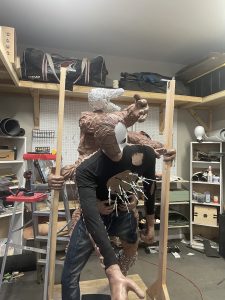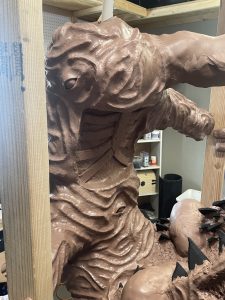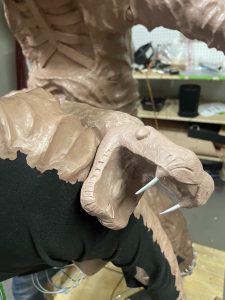Info dump
Most of this week has been finishing the texture on Derek and Anthony as well as some small parts that needed some touch ups. It’s not really that exciting because it’s the same thing over and over again. Although I am basically almost done with sculpting which is exciting.
I’m gonna put all my pictures in one then info dump about phobias.





The term “phobia” was only coined in the 19th century where it gradually gained acceptance by the main populace. Even though it wasn’t until the 19th century that people started to see phobias as what they are today, they have still had an eventful history. From Hippocrates to the 18th century there were still fears but they weren’t described as phobias in their own right.
Throughout history fear is what drove people, be it the Prehistoric era or the Modern era. Every society has one or more common fears. For example, in the Prehistoric era common fears were related to conflict, predators, and chronic stressors which influenced settlement patterns and social structures in early civilizations. While in the Modern era, common fears have turned to focus on things relating to technology, with things like AI some people look forward to the technological advancements while others fear the potential risks and biases associated with it. And the fear of illnesses developed because of Rapid socioeconomic change, technological advancements, and lifestyle shifts that significantly impacted individuals’ psychological health. Social isolation, financial instability, and uncertainty about the future have also contributed to this fear.
We have developed ways to make phobias more manageable with things like exposure therapy, Cognitive behavioral therapy (CBT), and art therapy that break down the root cause of the phobia through different means. However there is also no known way in preventing getting a phobia. About 80% of new phobias developed by adults become chronic long-term conditions that won’t go away without proper treatment.
I can talk about phobias for hours, but to save you from reading way too many words I have cut out some things. I hope you have enjoyed reading and have learned some things for the first time in one of my blog posts.

Comments:
All viewpoints are welcome but profane, threatening, disrespectful, or harassing comments will not be tolerated and are subject to moderation up to, and including, full deletion.